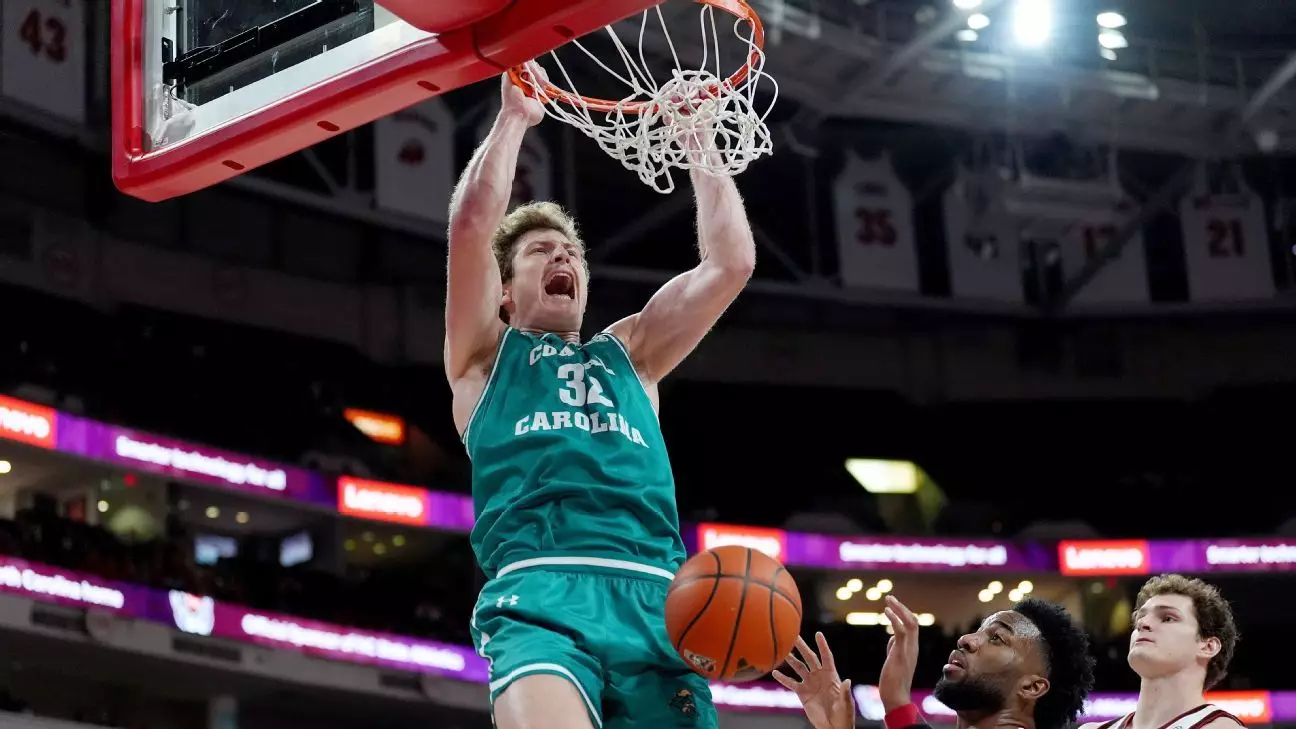In a strategic move that could redefine the approach to player recruitment in the NFL, the Carolina Panthers have signed Colin Granger, a towering 6-foot-8, 245-pound former collegiate basketball player. This decision embodies the Panther’s vision for innovation, exploring untapped potential by transitioning an athlete from basketball to football. Granger, who has played basketball at multiple colleges, is now poised to embark on an entirely new athletic journey, one that carries with it both considerable risk and exhilarating opportunity.
A Unique Background: From Hoops to Helmets
Colin Granger’s journey from the hardwood to the gridiron is emblematic of a broader trend that sees teams willing to invest in unconventional talent. After five years of honing his skills on the basketball court, Granger brings a unique skill set that many traditional football players simply do not possess. His size and athleticism can create mismatches against conventional defenders, a tactic that many modern coaches are increasingly embracing. The question remains, can he effectively translate his basketball skills into football success? His background indicates potential; he showcased incredible leaping ability and agility on the basketball court, traits that could serve him well as a tight end.
Competition Brews: The Tight End Depth Chart
Granger will face fierce competition as he vies for a spot on the Panthers’ tight end roster. He will be joining established players like Tommy Tremble and Ja’Tavion Sanders, along with rookies and veterans who have years of experience in football. This mix creates an environment filled with learning and adaptation, not just for Granger but for all players involved. The reputation of tight ends as versatile weapons in offensive schemes adds to the stakes. In an era where the position is evolving, Granger’s ability to learn and adapt will determine his future in the league.
Mentorship and Influence
Interestingly, the Panthers’ coaching staff, including head coach Dave Canales and general manager Dan Morgan, have experience with similar transitions, having previously worked with George Fant at Seattle. Fant’s success in converting from a college basketball player to a productive NFL tight end and tackle serves as a strong endorsement of Granger’s potential. With Fant actively mentoring Granger, there’s an optimistic narrative developing; such influences can accelerate the learning process, providing Granger with invaluable insights and techniques. Yet, the fact remains that Granger hasn’t donned a football helmet since eighth grade, a void that presents formidable challenges.
Risk vs. Reward: A Calculated Gamble
The decision to pursue Granger raises critical questions about the balance of risk and reward in player recruitment. While the prospect of nurturing a raw, untapped talent is exciting, the potential for failure looms large. Signing a player who hasn’t played football at a competitive level for years can be seen as an uphill battle, especially in a league known for its physicality and strategic complexity. However, should Granger successfully adapt and thrive, the Panthers may have unearthed a hidden gem, proving that unconventional paths can lead to extraordinary outcomes in professional sports.
The Panthers are demonstrating not only a willingness to innovate but a powerful belief in the beauty of second chances. Whether Colin Granger can transform his dream into reality remains to be seen, but the mere act of signing him encapsulates a daring spirit often necessary for breakthrough success in athletics.

